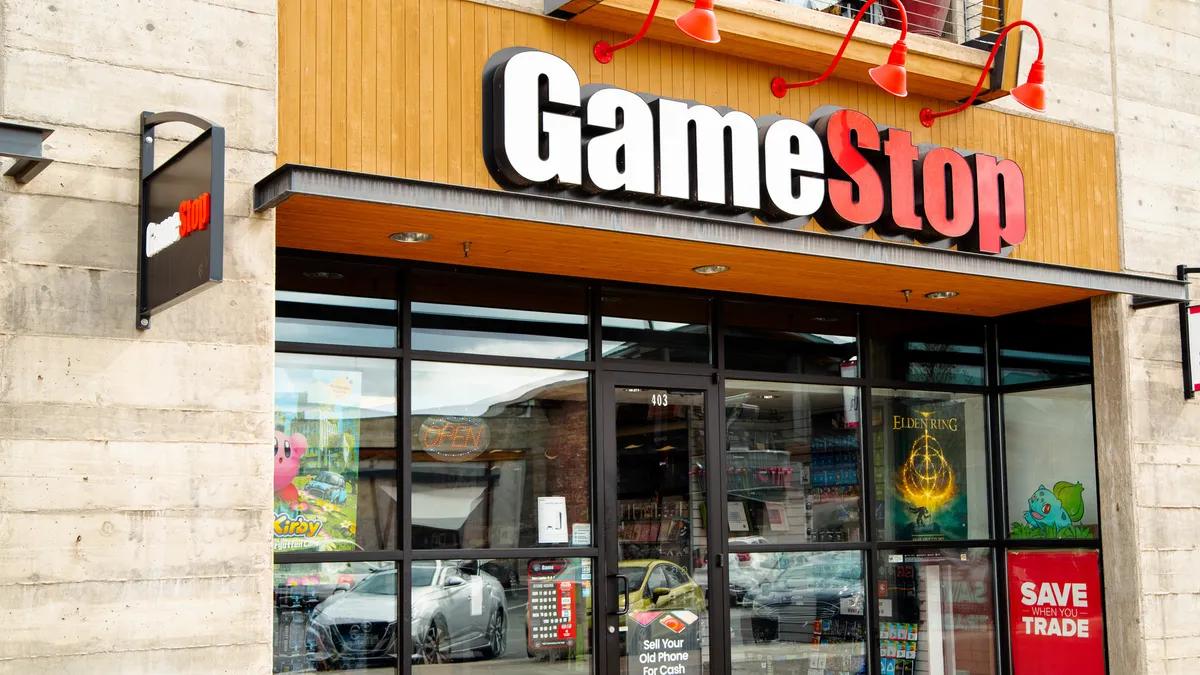GameStop on Friday said it had raised $933.4 million from a stock sale.
The video game retailer said earlier this month it intended to sell up to 45 million shares of its common stock through an at-the-market offering, according to a filing with the U.S Securities and Exchange Commission. It sold all of those shares.
GameStop’s shares on the New York Stock Exchange were up as of mid-morning Tuesday, the first day of trading following the Memorial Day holiday weekend. The company said it intends to use the stock sale’s net proceeds for general corporate purposes, which could include acquisitions and investments.
At the same time it announced the stock sale, the company said in a preliminary first-quarter earnings statement that it expects to post a net loss of $27 million to $37 million, with net sales ranging from $872 million to $892 million, down from $1.24 billion a year earlier. Additionally, in March, GameStop said in a regulatory filing that it cut an undisclosed number of jobs as a cost-saving measure.
The stock sale proceeds give GameStop “resources to buy something productive,” Michael Pachter, managing director of equity research at Wedbush, told Retail Dive in an email. “Their core business is destined to continue to shrink, and they can’t do much to stay profitable without either adding a new line of business or expanding into something related. Their biggest expenses are real estate and personnel, so adding anything that leverages both (selling more than just games) should help them to add profitable revenue without meaningfully increasing expense.”
GameStop had 4,169 stores globally as of Feb. 3. More than 2,900 of them were in the U.S. The company’s core offerings center on video game consoles, like the XBox, PlayStation and Nintendo Switch; gaming software; and collectibles.
Pachter said another player in the space, Best Buy, is also having trouble slowing the migration of consumer electronics to online stores. If GameStop tried to expand more into Best Buy's space, it would still be facing a shrinking retail sector.
GameStop is among a handful of companies that have seen social media-driven speculative interest drive up stock prices beyond their actual market value, a phenomenon that analysts have dubbed a meme stock. GameStop acknowledged this trend in a recent SEC filing, saying recent stock price fluctuations don’t appear based on the underlying fundamentals of the business or the results of operations.
“GameStop has no particular competitive advantage at retail, but with around $2 billion in cash on its balance sheet, perhaps it can find something to exploit,” Pachter said. “I think the most likely case is that the stock returns to the $10 level and they buy it back. That’s saying ‘sell high, buy low.’ Every time they see it pop back up, they can repeat the process.”















